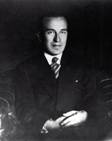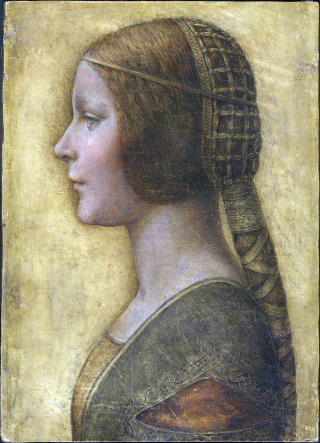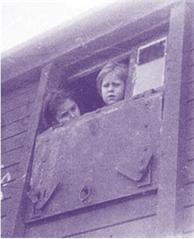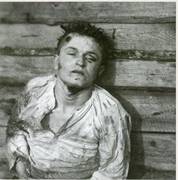
THE VOICE OF INTERNATIONAL LITHUANIA
|
VilNews has its own Google archive! Type a word in the above search box to find any article.
You can also follow us on Facebook. We have two different pages. Click to open and join.
|
14 June 1941 – the day Lina’s long journey to Siberia started
Sat, 11th June, 2011 - (4) Comment
Best-selling author Ruta Sepetys interviewed by Ellen Cassedy
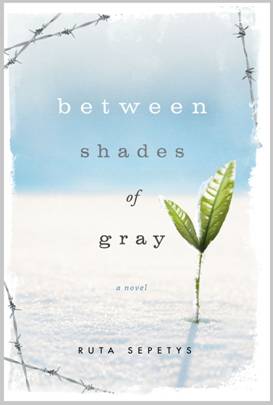
Ruta Sepetys' novel "Between shades of Gray" tells the story of the Soviet deportations of 1941. More at www.betweenshadesofgray.com
June 14 marks the 70th anniversary of mass deportation of Lithuanians to Siberia. On this date in 1941, as Nazi Germany prepared to invade Lithuania, Soviet authorities loaded tens of thousands of people – men, women and children – into cattle cars and transported them into exile. Some were sentenced to death; some died under harsh conditions of forced labor; some survived. With Stalin's death in 1953, the Siberian camps began to empty out. But it was many years before the stories of the exile were openly told.

Author Ruta Sepetys
A new novel, Between Shades of Gray (Philomel/Penguin), brings the story of the 1941 deportations into vivid focus. It will be published in Lithuania under the name Tarp pilku debesu (Alma Littera), and in 23 other countries.
VilNews correspondent Ellen Cassedy interviewed author Ruta Sepetys Washington, D.C.
- Bookmark :
- Digg
- del.icio.us
- Stumbleupon
- Redit it
The Molotov – Ribbentrop Pact
Sat, 11th June, 2011 - (1) Comment
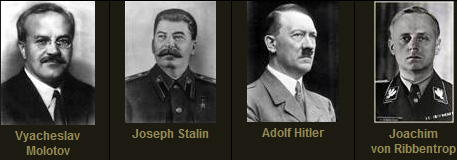
Part 1 of 2:
THE DOCUMENTS
Dear Readers,
In this part 1 of 2 articles about the Molotov – Ribbentrop Pact and the Secret Protocols, you will get some insight as to when and why the Pact and Secret Protocols were made public and the work that has done to verify to authenticity of the copies of the documents now available.
INTRODUCTION by EDITOR SAULIUS SUŽIEDĖLIS
The day after the signing of the German-Soviet Nonaggression Pact of 23 August 1939, Soviet and German newspapers carried the news and text of the treaty to a stunned Europe.
- Bookmark :
- Digg
- del.icio.us
- Stumbleupon
- Redit it
Bloodlands – Europe between Hitler and Stalin
Thu, 19th May, 2011 - (1) Comment

A book by history professor Anthony Snyder of Yale University
Hitler vs. Stalin: Who Killed More?
Who was worse, Hitler or Stalin?
Were these people victims of Stalin or of Hitler? Or both?
“Bloodlands makes clear that, if it hadn’t been for Hitler’s treachery in the spring of 1941, Stalin would have gladly remained a German ally. And it was not Germany alone that started the Second World War but Germany and the Soviets together, when they jointly invaded Poland, allowing the Nazis to finally catch up with a killing enterprise Stalin had already begun.”
- Charles Lewis, National Post, Canada
- Bookmark :
- Digg
- del.icio.us
- Stumbleupon
- Redit it
Sun, 15th May, 2011 - (0) Comment
The Lithuanian partisan war 1944 – 1953:
A mistake to confuse resistance to occupation and WWII

The Second World War in Europe was a war fought against fascism – in particular the German variant exemplified by Nazism – and including also Italian fascism. The Second World War in Europe ended with the surrender of Germany; a surrender to which Russia was the major contributor because Germany was largely defeated at Stalingrad and Kursk and was always in retreat afterwards.
The Resistance in Lithuania against Soviet occupation was a heroic effort by some Lithuanians to obtain freedom for their country. In my opinion it is a mistake to confuse resistance to occupation and the Second World War. After the end of the Second World War there have been many occupations of many countries by Capitalist and Communist powers and each side has tried to characterise any resistance to its forces as an act of the 'Other' side.
Resistance to Occupation has a very long and courageous history in Europe and throughout the world and no 'side' has a right to claim the heroic activities of resistance fighters/activists to support its ideology. Inevitably that requires misrepresentation of the motives and objectives of the resistance; part of the theme of the book "The Ugly American" about the then developing Vietnamese war. It is also the type of misrepresentation that leads to one 'side' claiming "We are all Georgians now".
This misrepresentation is a major cause of the inability of 'Western' countries to think in any clear way about the activities grouped under the label of 'terrorism' and it is better to avoid such ideologically driven commentary/analysis.
Robert Jennings,
Ireland-Lithuania
The 'war against fascism' was a construct intended to make the Soviet Union look good
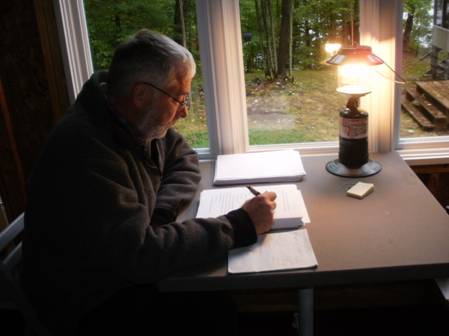
Antantas Sileika
Dear Editor,
Mr. Robert Jennings's letter, in which he claims that the Second World War was a war against fascism and nothing else, obfuscates the truth rather than clarifies it.
No one declared war on fascism. If they had, Spain and Portugal would have between attacked. The United Sates and other powers declared war against the axis powers. The "war against fascism" was a construct intended to make the Soviet Union look good and to disguise its own crimes. How was the Soviet invasion of Finland in 1939 a war against fascism? What about the forced incorporation of the Baltic States into the Soviet Union well before any war with Germany? What about the Molotov-Ribbentrop pact, which divided Eastern Europe between the Soviet Union and Germany? Would the Poles agree that the war was a war against fascism? Was the murder of the Polish officers at Katyn part of the war against fascism?
Neither Tony Judt nor Norman Davies, prominent historians of Europe, would agree that the conflict which only ended in 1989 with the fall of the Berlin wall was a "war against fascism."
Who benefits by such a formulation? Only the Soviets, whose crimes become excusable excesses of war. The independent Lithuanian government now considers the last anti-Soviet partisan commander, Jonas Zemaitis, to have been the Lithuanian head of state. It seems that L Beria considered him the same way because upon his capture in 1953, Zemaitis was transported to Moscow and interviewed by Beria who seemed to be seeking accommodation now that Stalin had died. However, both Zemaitis and Beria were executed that same year.
WW2 is remembered as a "good war", but this is a formulation that works only on the western side, where the allies came to help brave resisters such as the French underground. There were brave underground resisters in the East too, but no one ever came to help them. They fought until the dies, were captured, or gave up. Their story is just coming out now.
Antanas Sileika,
Canada
- Bookmark :
- Digg
- del.icio.us
- Stumbleupon
- Redit it
Fri, 13th May, 2011 - (0) Comment
Lithuania and the Soviet Union
1939 – 1940 (1 – 4)
Dear readers,
On 15 June 1940, Soviet Russia invaded Lithuania. This was the beginning of Lithuania's loss of freedom for more than fifty years and the beginning of one of the saddest and most tragic parts of Lithuania's history. There has been much talk and speculation about how this invasion came about and what Lithuania did, or as some would accuse didn't do, to prevent it. To shed clear light on this topic, we would like to share with you parts of the personal memoirs of Juozas Urbšys who was a member of the group that personally met with Vyacheslav Molotov and Stalin. After reading these fascinating and very informative memoirs we are sure you will have a better appreciation for the precarious situation the leaders of the then free Republic of Lithuania were in and what they did to try to protect the lives of the Lithuanian people.
|
|
|
|
|
We share these memoirs in 4 parts. Here they are:
(click on the titles to open the articles)
Part 1: In Moscow
Part 2: Vilnius, army garrisons
Part 3: We accustom ourselves to army bases.
Part 4: Ultimatum. Occupation.
- Bookmark :
- Digg
- del.icio.us
- Stumbleupon
- Redit it
Venclova`s Vilnius (1 – 4)
Fri, 13th May, 2011 - (0) Comment
The history of the amazing Lithuanian city written by the great poet most qualified to write about it. This book includes a dialogue between the author and Nobel Prize laureate Czeslaw Milosz about the city. An absolutely indispensable work on the city that produced John Gielgud, Bernard Berenson and the Budapest String Quartet.
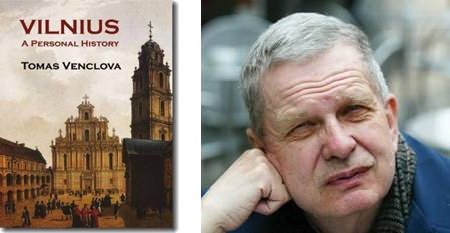
This is the four parts in a series of excerpts from Tomas Venclova’s book “Vilnius a Personal History”.
(click on the titles to open the articles)
Part 1: Venclova’s Vilnius
Part 2: Mindaugas, Gediminas and Vilnius
Part 3: Pagan Lithuania
Part 4: Lithuanians, “The Saracens of the North”…
- Bookmark :
- Digg
- del.icio.us
- Stumbleupon
- Redit it
A Christmas story from Šilagalis, year 1945
Sun, 8th May, 2011 - (4) Comment
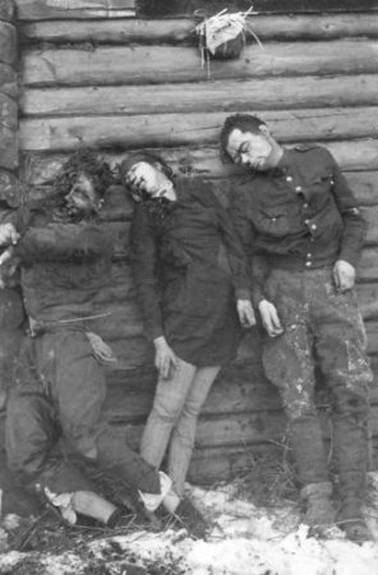
Desecrated bodies of unrecognized Lithuanian partisans.
Christmas 1945 was in most of the world celebrated with a joy and delight hardly ever seen before. Young and old met in homes, on streets and in churches. An infinite series of victory events took place in almost every corner of the world. With a deep sense of joy and gratitude all wished each other a heartfelt good and restful Christmas holiday, knowing that the Nazi-era was over and that the world now more than ever could look forward to a future of peace and prosperity. The war had finally released its grip, forgotten was the economic recession of the 1930s, but forgotten was also our close friends and neighbours - the Baltic States.
On a small farm in northern Lithuania, in the outskirts of the village Šilagalis, the Christmas of 1945 is also approaching. It is the 22nd December today, and the mother in the house feels very happy that her 21-year-old son Povilas finally has come home for a visit after having been away for many months.
He has come to change to dry clothes that can keep him warm through the cold winter days waiting. His mother is infinitely happy to have her son home this one day, and she does everything she can to treat him with all the good food and drink found in the farm stores. You never know how long it will be till next time.
Povilas had joined a local partisan group earlier in 1945, and now spends all the time in Northern Lithuania's forests where the local "forest brothers" have established their hidden habitats. It is from these caches, often at night time, they still conduct operations against the military facilities and forces of the Soviet Red Army and the NKVD, the Soviet secret police which later changed its name to KGB. Soviet occupation of Lithuania has lasted more than a year now, but Povilas and other forest brothers still hope their constant needle can get Joseph Stalin to withdraw his troops out of Lithuania and the other two Baltic countries.
- Bookmark :
- Digg
- del.icio.us
- Stumbleupon
- Redit it
I’ve known her just by sight and hearsay, in the famous Klaipėda Castle
Sat, 9th April, 2011 - (4) Comment
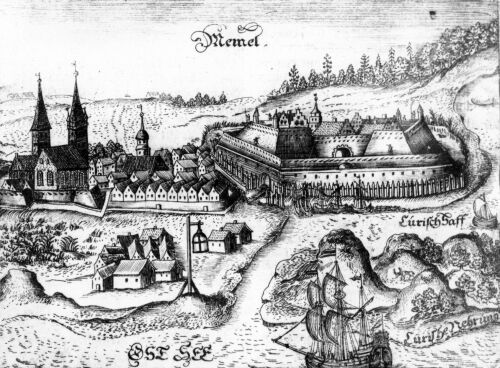
Madrid, 1799.
I must set sail before Napoleon tries to conquer London, winter has been hard in Madrid. From the beginning of spring I have enlisted as first gunner on a pirate ship. An old friend, a German Captain, has given me a map and a letter for some gentlemen in Memel. I have been serving among men of his Majesty Charles III. A betrayal has put my name among his enemies. In truth, my goal is to keep track of a beautiful woman, who seems an honest person. I've known her just by sight and hearsay, in the famous Klaipėda Castle during a trip by this port with English traders. She was discussing with master control, even too highly educated for my sword. She is a port that I don’t know. Her eyes guide me, but also betray me. In a few centuries my children will be writing about this feat. Useless for history; perhaps even bloody. This is my logbook. The rest should be decided by the fury of the wind, my trusty sword and the unpredictable night.
- Bookmark :
- Digg
- del.icio.us
- Stumbleupon
- Redit it
Searching for the Holy Grail? Come to Vilnius!
Thu, 17th March, 2011 - (14) Comment
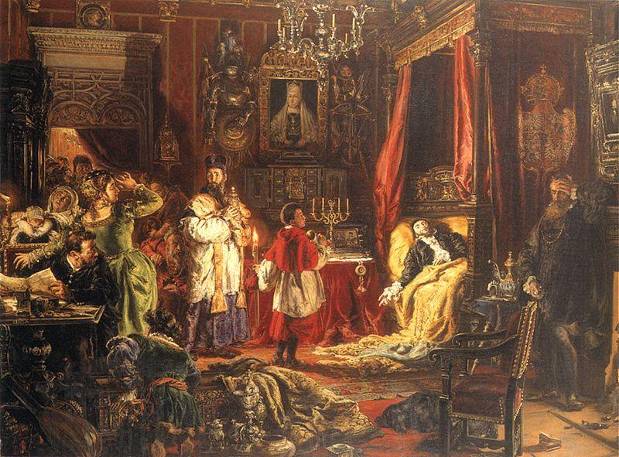
The death of Lithuania’s Grand Duke Sigismund Augustus in July 1572 could have become extremely disastrous for the Holy Grail. But the duke passed away knowing that it was in the safe hands of the Jesuit Brothers. The duke, however, never got to see the final hiding place for the Grail, as Vilnius University was completed only in 1579. Sigismund Augustus died childless and thus became the last ruler of the grand Jogailo Dynasty as well as of the Italian-Lithuanian dynasty that Leonardo da Vinci and the Holy Roman Empire had planned with so much energy earlier in the century.
Forget Rosslyn Chapel in Scotland. Forget the Louvre Museum in Paris. If you're among the millions who have read Dan Brown's book 'The da Vinci Code', you have probably also made some reflections on how the Holy Grail disappeared, virtually without a trace, after Leonardo da Vinci died in 1519. In that case I will now give you some hints and clues that you can begin to investigate.
Let me first put on the table some facts Dan Brown missed in his book. Brown, and many with him, thinks of Florence, Rome and Paris as the cities da Vinci was linked to. Most people forget that he lived and worked in Milan for many years, and that it was precisely here he painted ‘The Last Supper’ that Dan Brown so strongly emphasizes in his evidence collection.
Brown also does not mention that da Vinci for many years lived in the house of the Sforza family that ruled Milan at that time. But it is in this house the solution to the riddle lies.
- Bookmark :
- Digg
- del.icio.us
- Stumbleupon
- Redit it
Hitherto unknown Da Vinci painting uncovered; the cousin of Lithuania’s Grand Duchess Bona Sforza
Thu, 17th March, 2011 - (7) Comment
|
The painting was thought to be an obscure 19th Century work known as Young Girl in Profile in Renaissance Dress. It has been revealed, though, to be a hitherto unknown work by Leonardo da Vinci and has been renamed La Bella Principessa. The painting became known when it showed up in a Christies auction house catalogue in the early 1990s. It sold for $19,000 to an art dealer named Kate Ganz, who subsequently sold it for a similar price in 2007. The work is now in a Swiss bank vault and is valued at $160 million. Peter Silverman, an art collector, was the first to suspect that the work was not 19th Century. After study, Silverman concluded that the painting was a hitherto unknown work of Leonardo da Vinci, one of the most famous artists of the Renaissance. Further study using the latest in digital imaging technology discovered a partial hand print and a fingerprint that matched those found on two other known works by Leonardo da Vinci. Finally Da Vinci expert Martin Kemp, Professor Emeritus at Oxford University, was called in to examine the painting, Kemp concluded that the painting was indeed a Da Vinci, likely dating from 1496. The work was executed on vellum and was meant to be the cover of a book of poetry, meant as a gift. Kemp believes that the portrait is of Bianca Sforza, daughter of Ludovico Sforza, Duke of Milan and his mistress Bernardina de Corradis. Hence Martin Kemp has renamed the painting, La Bella Principessa. |
|
- Bookmark :
- Digg
- del.icio.us
- Stumbleupon
- Redit it
150 years since the birth of Jonas Sliupas (1861 – 1944)
Sun, 6th March, 2011 - (0) Comment

Dr. Jonas Sliupas (1861 – 1944) with family and friends at his Palanga home in the 1930s.
Dr. Sliupas was a physician, publicist, and a leading nationalist liberal activist both in USA and Lithuania. He was Mayor of Palanga from 1933 to 1940, and returned to this office briefly during the Nazi occupation of 1941, until ousted because of his protest against the destruction of Lithuanian and Jewish lives. Dr. Sliupas was one of the interwar's leading politicians and advocates for a free, independent, honourable and prosperous Lithuania – a proud representative of the national patriarchs who continuously fought for Lithuania’s case through all the years between the First and Second World War. Dr. Sliupas continued to speak the case of a free Lithuania until his death in 1944. He will be celebrated as one of Lithuania’s true heroes and finest gentlemen ever, with an amazing record of achievements for his beloved homeland.
- Bookmark :
- Digg
- del.icio.us
- Stumbleupon
- Redit it
The man who declined the presidency
Sun, 6th March, 2011 - (4) Comment

Dr. Jonas Sliupas (1861 – 1944)
The year is 1926. It is a very dark late autumn evening in Kaunas, Lithuania's capital between 1st and 2nd World Wars, when three officers from the Lithuanian army rush up to the house where Dr. Jonas Sliupas now lives while he teaches at the University of Kaunas. It is nearly midnight when the officers knock heavily on his door and asks to come inside.
The officers bring shocking news. They tell that since the early autumn of 1926 key officers within two army groups have been in full swing of planning a coup d’état in Lithuania, and that they have now reached the point that they want to depose of President Kazys Grinius and insert a new President. The question to Dr. Sliupas is therefore whether he can accept becoming the country's new President.
But Dr. Sliupas is not willing to accept. President Grinius has been his good friend for many years, and Sliupas is puzzled as to why the military has found a coup appropriate and necessary. His answer to the officers is therefore that the only way he could accept becoming President of Lithuania would be through a democratic election.
The officers had to leave Sliupas empty-handed that night, but continued their plans, and the very coup took place a few days later, during the very night when the 60th birthday of President Grinius was celebrated, 17 December 1926.
- Bookmark :
- Digg
- del.icio.us
- Stumbleupon
- Redit it
Sat, 18th December, 2010 - (7) Comment
1941- 1953:
300 000 Lithuanians were deported to merciless inhumanity in Siberia...
From Lietuviai Sibire / Lithuanians in Siberia,
Chicago: Lithuanian Press, Inc. 1981, Dust jacket cover
During the period 1941-1953, some 132,000 Lithuanians were deported to remote areas of the USSR, in Siberia, the Arctic Circle areas and Central Asia. They were not allowed to leave the remote villages they were brought to. More than 70 percent of the deportees were women and children. Around 50,000 of the deportees were not able to return to Lithuania ever again.
- Bookmark :
- Digg
- del.icio.us
- Stumbleupon
- Redit it
The tragic story of how one third of Lithuania’s population became victims of Soviet terror
Thu, 9th December, 2010 - (5) Comment
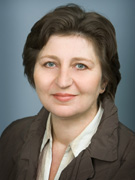
Dalia Kuodyte.
This article is based on a speech manuscript by Dalia Kuodyte,
Member of the Parliament, former Director General of the Centre of Genocide and Resistance (LGGRTC).
“In the trains’ cattle cars the passengers were hardly given any food except from a little water and some inedible soup. There was scarcely any air to breathe as everyone was jammed together and the cars had only a few small windows covered with bars. A hole in the floor served as a toilet. Some of the people, especially the infants became sick immediately and died. The bodies of those who died on the journey were left on the side of the tracks.”

The string of tragedies began in August 1939, when Hitler and Stalin concluded a cynical agreement that divided up Central Europe between the two totalitarian countries. According to the Molotov-Ribbentrop pact, Lithuania was to fall into the Soviet zone of influence.
After the outbreak of the Second World War, Lithuania was occupied three times: first by the USSR in 1940, then by Nazi Germany in 1941, and finally by the USSR again in 1944.
Pre-war Lithuania’s position of neutrality on the eve of WWII did not protect the country from its sad fate. According to Lithuanian state institutions, the damage caused by the USSR‘s occupation to the Republic of Lithuania in financial terms is $278 billion. During Nazi and Soviet occupations, including 200,000 Holocaust victims, the losses of the population of Lithuania amounted to 33 percent of the total number of the country's population in 1940. Lithuania lost 1 million people to deportations, executions, incarceration, the murder of the political opposition and forced emigration.
The total number of persons registered as “anti-Soviet elements” reached 320,000 entries. There were teachers and professors, school and college students, farmers, industry workers and craftsmen among them.
June 14-18, 1941 were the dark days of the first massive arrest and deportation of the Lithuanian population. A cargo of 16,246 people were crammed into cattle cars. Moscow’s instruction required separate men from their families. So, 3,915 men were separated and transported to concentration camps in the Krasnoyarsk territory while 12,331 women, children and elderly people were transported to the Altai Mountains territory, the Komi republic and to the Tomsk region.
Forty percent these deportees were children below 16 years old. More than half of the deported died quickly. Pregnant women and babies born in the cattle cars were the first victims – they died in the trains. The deportation process was interrupted by the German-Soviet war.
The Soviets resumed mass deportations to Siberia and other eastern regions of the USSR after recapturing Lithuania from Nazi Germany in 1944. The partisan anti-Soviet war for democratic and independent Lithuania began in 1944. Some 22,000 Lithuanian partisans lost their lives in unequal war against the Soviet regular army and NKVD units. From 1949 the armed resistance started to wane. This guerilla war continued until 1953. The last resistance fighter refused to surrender and shot himself in 1965.
Partisans, their supporters and non-armed opposition made up a big group among those who were deported in 1945 – 1947. Another big group of deportees was those who tried to escape service in the Red Army. Ethnic Germans and members of their families, who did not leave Lithuania, were deported as well.
The situation changed in 1948. The most extensive deportation from Lithuania was held on May 22 and 23, 1948. Over these two days 12,100 families, numbering over 41,000 people, were seized from their homes and exiled. In 1948, 50 percent of deportees were accused not of their relations with the armed guerillas. Their official guilt was their social class – they were owners of private farms. In 1949, already two-thirds of the deportees belonged to this category while in 1951 they absolutely dominated the Soviet secret police‘s statistics.
Such change was due to the collectivization campaign in the Lithuania’s countryside. In 1948, the Soviets started to implement mass collectivization, appropriating land and livestock. This resulted in establishment of kolkhozes. In 1950, some 90 percent of land was given to kolkhozes. Mass deportations continued until the death of Josef Stalin in 1953.
- Bookmark :
- Digg
- del.icio.us
- Stumbleupon
- Redit it
VilNews e-magazine is published in Vilnius, Lithuania. Editor-in-Chief: Mr. Aage Myhre. Inquires to the editors: editor@VilNews.com.
Code of Ethics: See Section 2 – about VilNews. VilNews is not responsible for content on external links/web pages.
HOW TO ADVERTISE IN VILNEWS.
All content is copyrighted © 2011. UAB ‘VilNews’.

 Click on the buttons to open and read each of VilNews' 18 sub-sections
Click on the buttons to open and read each of VilNews' 18 sub-sections 

